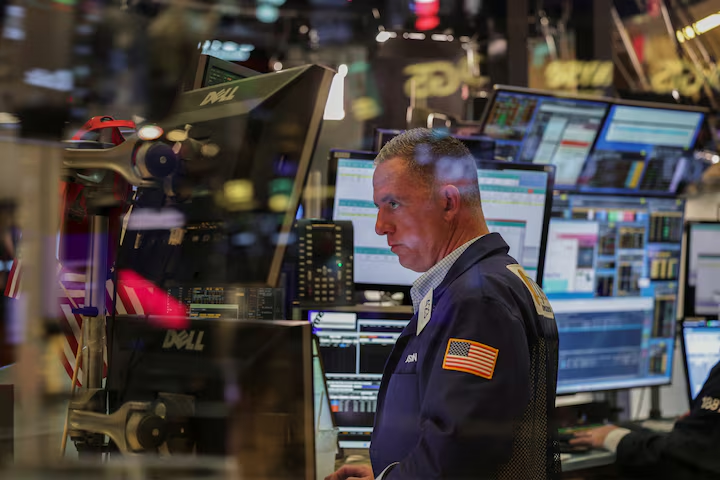US Earnings Season Begins Amid Trump Tariff Uncertainty

NEW YORK, July 9, 2025 — The second-quarter earnings season in the United States is set to begin next week, with investors closely watching for the first corporate results since President Donald Trump escalated his global tariff war on April 2.
Analysts expect a 5.8% year-over-year growth in S&P 500 earnings, a slowdown from the 13.7% gain in Q1, according to data from LSEG. However, the recent decline in the U.S. dollar may help offset some of the pressure on corporate margins caused by higher import costs.
Tariffs Dominate Market Focus
Trump’s trade policy has rapidly evolved, with new 50% tariffs on imported copper and upcoming levies on semiconductors and pharmaceuticals. Additionally, 14 nations—including Japan and South Korea—now face increased tariffs by August 1 unless new deals are reached.
So far, only the UK and Vietnam have secured agreements. The broader market has responded with caution as tariff-related uncertainty continues to affect investment decisions and company forecasts.
“Companies were resilient in Q1, but the real test comes now,” said Keith Lerner, Chief Market Strategist at Truist Advisory Services.
Dollar Weakness May Offer Relief
The U.S. dollar index fell nearly 7% in Q2, the sharpest quarterly drop since 1973. This currency depreciation could boost overseas sales for multinational firms by making U.S. goods more affordable abroad.
“It might be enough to offset some of the tariff impact,” said Peter Tuz, president of Chase Investment Counsel.
Sector Highlights: Technology and Communication Surge
Tech and communication stocks led the second-quarter rebound. The technology sector jumped 23.5%, while communication services rose 31.8%, driven by investor confidence in artificial intelligence and recovery after Q1 losses.
Notably, Nvidia’s valuation nearly reached $4 trillion, briefly making it the world’s most valuable company. Analysts forecast 17.7% earnings growth for tech and 31.8% for communication services compared to a year ago.
Tariff Impact on Corporate Guidance
While tariffs have not yet caused a widespread pullback in spending or sales forecasts, analysts warn of potential risks to corporate margins, particularly if companies are forced to absorb additional costs.
“Goldman Sachs expects consumers to absorb 70% of tariff costs,” wrote equity strategist David Kostin.
According to UBS, tariff-sensitive industries like autos, transportation, and consumer durables have seen downward revisions in earnings estimates since April’s “Liberation Day” tariff wave.
Expectations Remain Low but Manageable
Despite these headwinds, most S&P 500 companies tend to beat earnings forecasts. Lower expectations may give many companies a chance to post positive surprises and sustain market momentum.
“The record-high S&P 500 shows investor optimism,” said Nicholas Colas of DataTrek. “The bar is low enough to clear.”
For author: Staff Writer
Courtesy of: Forbes
Source: Reuters
: 310







